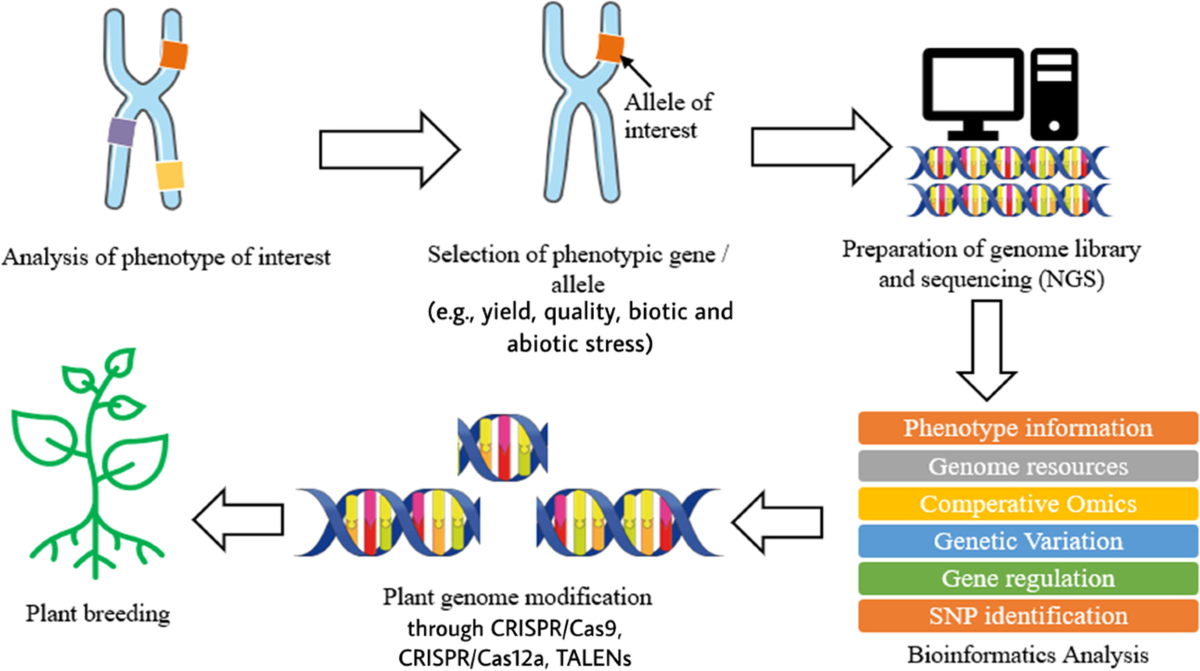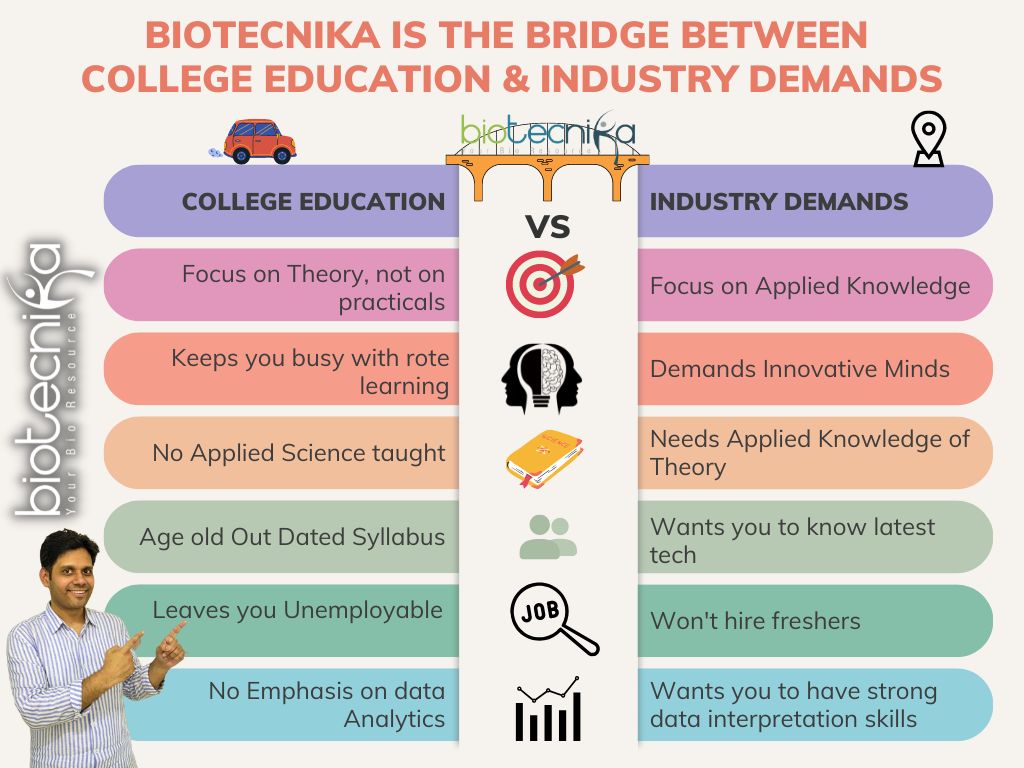The 6-Minute Rule for Bioinformatics Tutor
The 6-Minute Rule for Bioinformatics Tutor
Blog Article
How Bioinformatics Tutor can Save You Time, Stress, and Money.
Table of ContentsThe Best Strategy To Use For Bioinformatics TutorExcitement About Bioinformatics TutorOur Bioinformatics Tutor PDFsThe smart Trick of Bioinformatics Tutor That Nobody is Talking AboutBioinformatics Tutor for Beginners
Of the total amount individuals entailed in the training, 80% were pupils from public greater education organizations, while the staying 20% came from exclusive organizations. To get a certification of engagement, trainees were called for to participate in a minimum of 90% of the total training hours. As an outcome of this demand, an impressive 95% of the participants successfully obtained their certificates, having not just met the minimum presence requirements however likewise completed all designated activities throughout the training.
Throughout the elevation of the COVID-19 pandemic, especially in between June and August 2020, the project team was charged with arranging specialized training in bioinformatics. This training was especially targeted at students from the study group Center for Research in Applied Computer at the Federal College of Pará (UFRA) The adaptation to remote learning systems due to the pandemic produced a possibility to check out new training methodologies and digital tools that enhanced both reach and performance.
This training course was designed to offer an obtainable yet detailed introduction of Artificial Intelligence techniques, especially as used in bioinformatics (Bioinformatics Tutor). This digital style made it possible for involvement from students across Brazil, many of whom could not have had the possibility to go to in-person sessions.
How Bioinformatics Tutor can Save You Time, Stress, and Money.
A noteworthy attribute of this program was its focus on hands-on learning. About 50% of the complete training hours were devoted to practical activities where pupils constructed intelligent designs and applications in a range of clinical domain names, consisting of genetics, molecular biology, and ecological information analysis. Commonly utilized structures and devices such as Spyder, Google Colab, Jupyter Notebooks, and Orange were incorporated into the coursework. These platforms enabled pupils to engage in real-time data adjustment, model training, and algorithm testing.
The course brought in 80 participants in total amount. Sixty of them were connected with various college institutions in the state of Pará, while the continuing to be twenty came from organizations located in five other Brazilian states. This wide geographical depiction highlighted the national passion in bioinformatics and the growing demand for specialized skills in this field. By introducing Expert system in a pertinent and functional context, the initiative offered to link the void between theory and real-world application, providing students with a strong foundation for future research study or work in the field.
The training campaign formed component of a more comprehensive scholastic outreach effort understood as the Bioinformatics when traveling project. This job has, for many years, presented loads of trainees to the world of bioinformatics and computational biology. The occasions held under this umbrella initiative have actually happened across numerous regions and years, as summed up in Table 1 (List of occasions, locations, years, and total numbers of trainees and trainers)
Several of these teams, at first brought with each other by their participation in training occasions, have actually since gone on to generate independent clinical study in cooperation with regional academic establishments. The training not just cultivated scientific reasoning within the context of bioinformatics but also stimulated collective connections that expanded beyond the training setting.
Facts About Bioinformatics Tutor Uncovered
The same team, leaving out IH and RR, likewise acted as tutors for the sensible training modules. Financing for the job was provided with the give 88887.200562/ 2018-00 from CAPES.
The Federal College of Pará's Workplace of Research study (PROPESP/UFPA) likewise offered economic support, specifically for the production of the final manuscript. website link The authors proclaim no monetary or commercial disputes of interest that could have influenced the research. All opinions and analyses revealed in this post are exclusively those of the writers and do not always reflect those of their corresponding establishments, the publisher, editors, or reviewers included in the magazine procedure.

The Single Strategy To Use For Bioinformatics Tutor
From an instructional perspective, the teaching method utilized in the training was deliberately interactive. Courses were performed in a fashion that encouraged student participation and conversation, exceeding memorizing memorization to check out exactly how ideas are developed, applied in daily life, and evaluated in scholastic settings. The instructional ideology concentrated on nurturing both strong and battling trainees, supplying customized assistance, and building self-confidence with sustained mentorship and persistence.

Each team, consisting of around 36 participants, was supported by 3 advisors-- the majority of whom were postdoctoral researchers with specific expertise. These advisors not just aided design the team projects yet also facilitated their execution, guaranteeing that each study question was both suitably difficult and pertinent. The objective was to supply a naturally reasonable context that participants might discover with open-ended purposes and access to curated datasets.
For added insights into the approach and outcomes of this project-based understanding imp source strategy, viewers are directed to S1 Text, which consists of comprehensive summaries of the instructional structure, examination techniques, and task styles used in the training sessions.
Getting The Bioinformatics Tutor To Work
Of the total participants included in the training, 80% were pupils from public greater education and learning institutions, while the staying 20% came from private establishments. To qualify for a certification of participation, students were needed to attend at the very least 90% of the overall training hours. Significantly, the original source beyond the trainees who enrolled in the training sessions, 7 skilled teachers participated in supplying the courses, while 3 committed research study teachers worked with the overall training procedure. About 50% of the total training hours were devoted to useful tasks where trainees built intelligent models and applications in a range of clinical domains, including genetics, molecular biology, and ecological information analysis. The training not just promoted clinical reasoning within the context of bioinformatics but also stimulated collective relationships that prolonged beyond the training environment.
Report this page